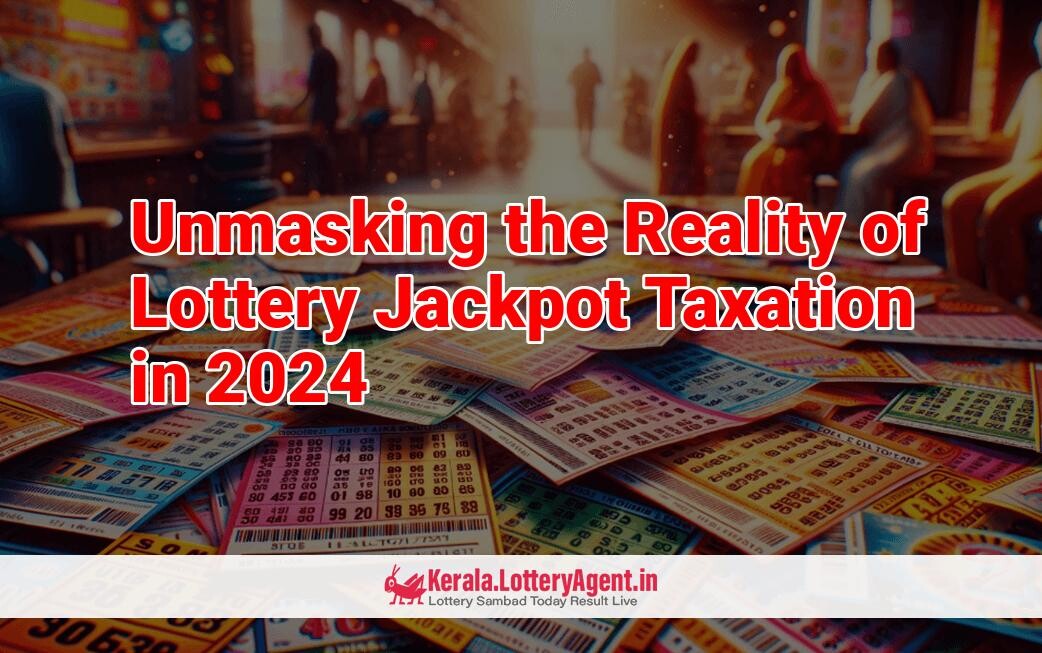
Imagine the exhilaration of those lucky few who hit the jackpot in lottery sweepstakes, reveling in newfound wealth. Yet, what many don’t anticipate is how a substantial portion of this windfall will be tendered to the tax authorities. Welcome to the financial twist in the fairy tale of lottery winnings—the taxman’s share.
Grasping the essentials of lottery taxation is imperative for those fortunate to win. It might be less exciting than the dream of spending sprees and infinite leisure, but it’s a financial fact: Lottery winnings are not immune to taxes. This fiscal reality is both complex and consequential, affecting the overall amount winners get to keep.
All lottery winnings are designated as taxable income. When Lady Luck smiles upon someone, they must report their windfall to the tax authorities. The amount of tax owed on these winnings depends on the amount won, the state of purchase, and the winner’s tax bracket.
For those who are bewildered by tax calculations, we offer a lottery payout and tax calculator that simplifies determining the tax due on any winnings.
Winners face a choice: accepting their prize as a one-time lump sum or as annuity payments distributed across many years. Each option has its own set of financial implications and possible tax benefits or drawbacks.
Tax obligations don’t end with federal taxes; winners must also contend with state and potentially local taxes, depending on where the winning ticket was bought. State tax rates are far from uniform—while some states exempt lottery winnings from taxes, others charge rates as high as 8.82%.
Should you find yourself among the ranks of the lucky, it is advantageous to become acquainted with the various tax rates, neatly compartmentalized into the following categories – for single filers, married individuals filing separately or jointly, and heads of households.
Our friends at the Internal Revenue Service (IRS) have established tax brackets that ascertain the amount of federal tax due. It’s a tiered system; hence, larger winnings invariably equate to higher taxes. For example, those who find themselves in the highest tax bracket may surrender up to 37% of their winnings to Uncle Sam.
Strategy is key when grappling with the tax implications of a lottery windfall. Engaging a seasoned tax advisor ensures that winners can navigate these fiscal waters deftly, potentially saving a considerable amount of money.
States where lotteries don’t exist are Alabama, Utah, Nevada, Mississippi, Hawaii, and Alaska. On the other end of the spectrum, New York exacts the steepest tax on winnings, followed closely by Maryland and the District of Columbia.
Local taxes, while generally more modest than their federal counterpart, can still take a bite out of winnings, ranging from 1% to 5%. Some states and local jurisdictions may also charge a retailer fee, deducted from the winnings.
The matter of taxation becomes more complex for international players. Not only might they face taxes in the United States, but also in their home country.
Here’s a briefing on the international tax landscape for lottery winnings: Tax rates can span from 3% for smaller prizes to 40% for substantial sums, illustrating the global disparity in tax policy on lottery gains.
For international players participating through online platforms like theLotter and Lotto Agent, understanding the tax laws of both the country hosting the lottery and their home country is critical.
A golden rule in the realm of lottery winnings and taxation: While taxes might absorb a hearty slice of your prize, they’re inescapable and, indeed, serve as contributions to vital government programs and services. It’s not all doom and gloom, though. There are strategies to mitigate the tax hit, such as choosing the annuity payment option or cashing in on tax credits available for joint filers.
To sum up, a thorough understanding of tax obligations is crucial for lottery winners. The reward may be sizable, but so too may be the tax bill. It’s always wise to seek professional advice to ensure you comply with tax laws and keep as much of your jackpot as possible.











